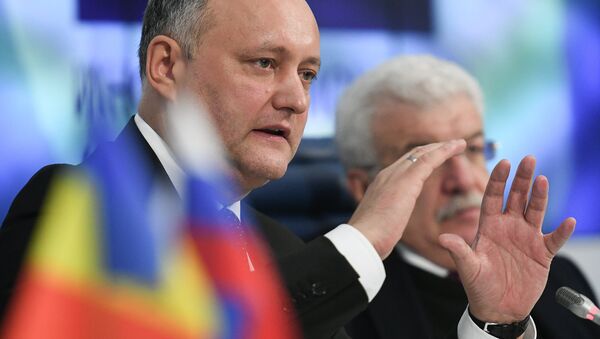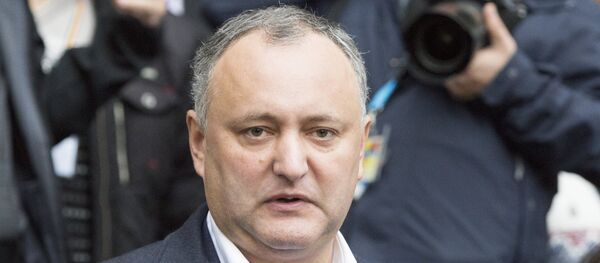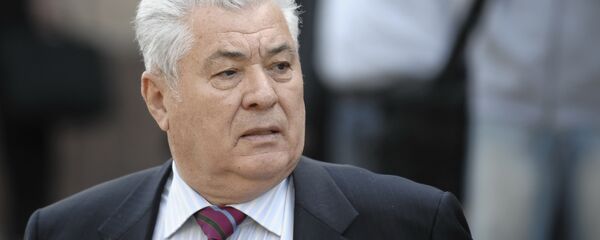The Moldovan government approved sending several dozen troops to Ukraine last week, ignoring Dodon's decree to block the deployment. Dodon described the move as an 'usurpation of power' by the cabinet.
Speaking to Radio Sputnik about what's likely to happen next, Boris Rozhin, an expert at the Center of Military-Political Journalism, said that the Moldovan government will be likely to try to ignore or challenge the president's demand for Galbura's resignation.
"This confrontation over sending the military abroad is an indication that the constitutional crisis in Moldova is deepening," the expert said. "The parliament and the government are refusing to recognize the president's authority as commander-in-chief to give orders to the country's armed forces."
The expert believes that this confrontation between the branches of Moldova's government is likely to continue until the next parliamentary elections, tentatively set for November 2018.
"The confrontation can be resolved through a decision of the constitutional court, which confirms or rejects Dodon's right to issue orders to the Armed Forces, or deepen further and continue until the next parliamentary elections," Rozhin said.
"After that, a reformatting of the legislature may take place. At the moment, the ruling establishment does not reflect the alignment of forces in Moldovan society, which has grown tired of the government's push for European integration, which did not bring the hoped for economic and social improvements for ordinary people."
The present crisis is not the first public conflict between Dodon and the cabinet o ministers. Earlier, the government asked the UN General Assembly to consider the removal of Russian peacekeeping troops from the breakaway republic of Transnistria. Dodon called the initiative an "empty PR move." The president and the cabinet have faced off over Russia repeatedly, the government proposing a series of unfriendly gestures, with the president, in turn, saying that he would like to bring the country closer to Moscow.
Dodon, often described by Western political observers as 'pro-Russian', won presidential elections in 2016, defeating his pro-West, pro-EU opponent Maia Sandu. Moldova's parliament and government are dominated by the pro-EU Democratic Party of Moldova, a social democratic party closely associated with oligarch Vladimir Plahotniuc, and a collection of independent MPs.
Commenting on the political situation in the country, political observer Viktor Marakhovsky wrote that it would be more correct to call Dodon 'pro-Moldovan' than 'pro-Russian', because the pro-EU elites he is up against have effectively "privatized political power in exchange for international grants, figuratively speaking." Not only do they seek to give up sovereignty to EU structures; some have spearheaded a campaign pushing for Romania's absorption of Moldova, a campaign actively supported by Bucharest.





